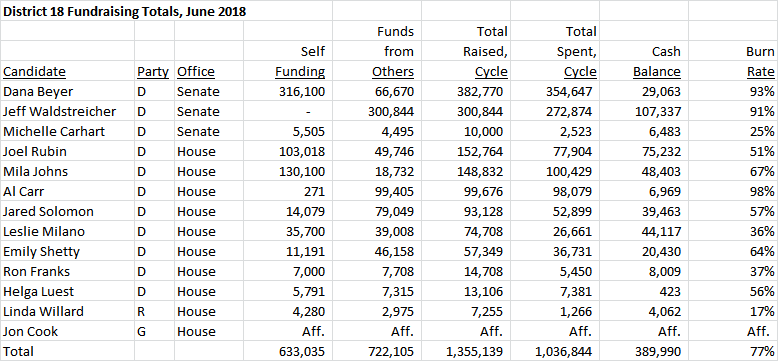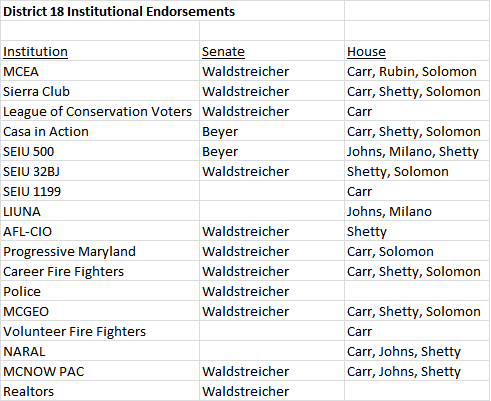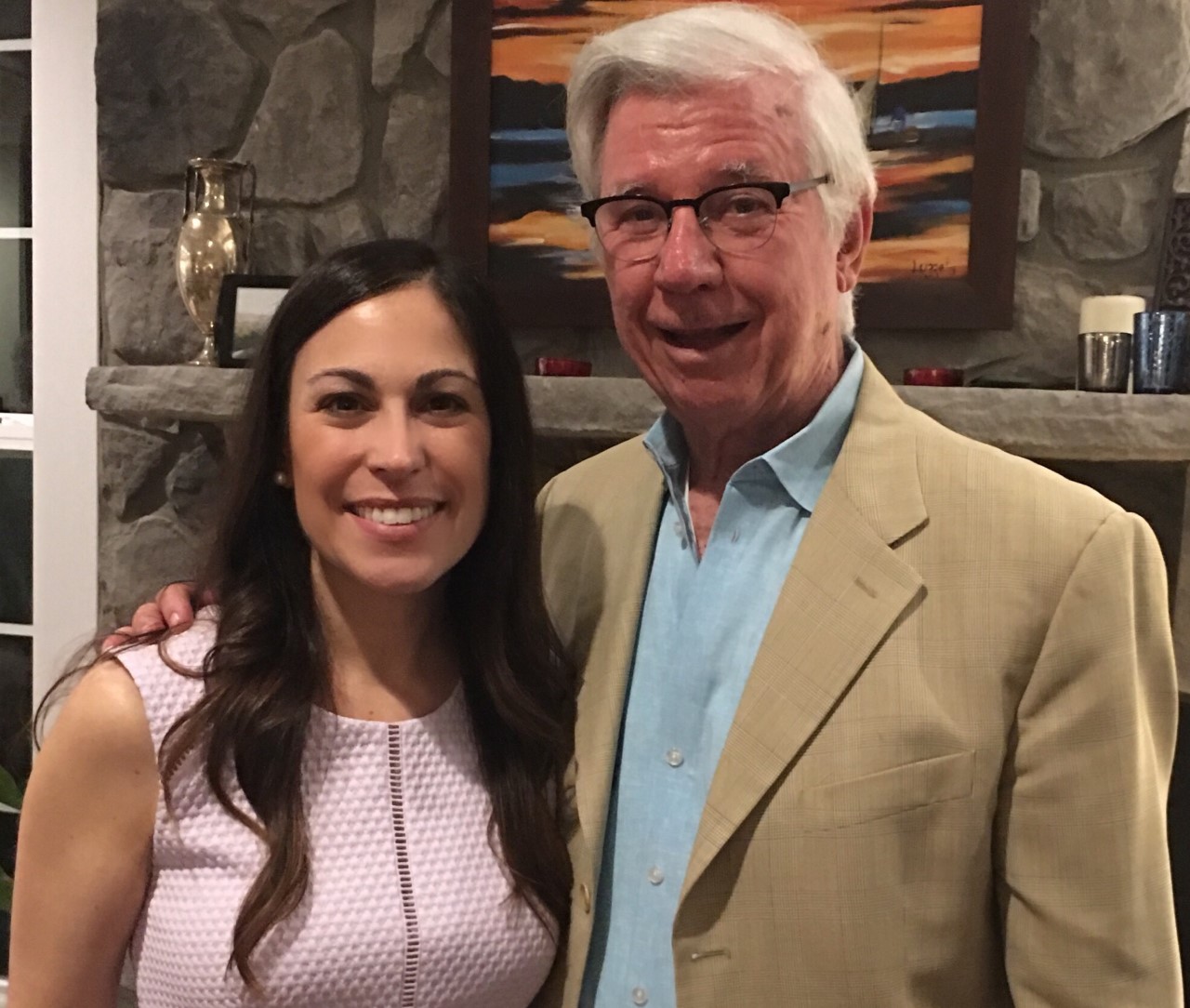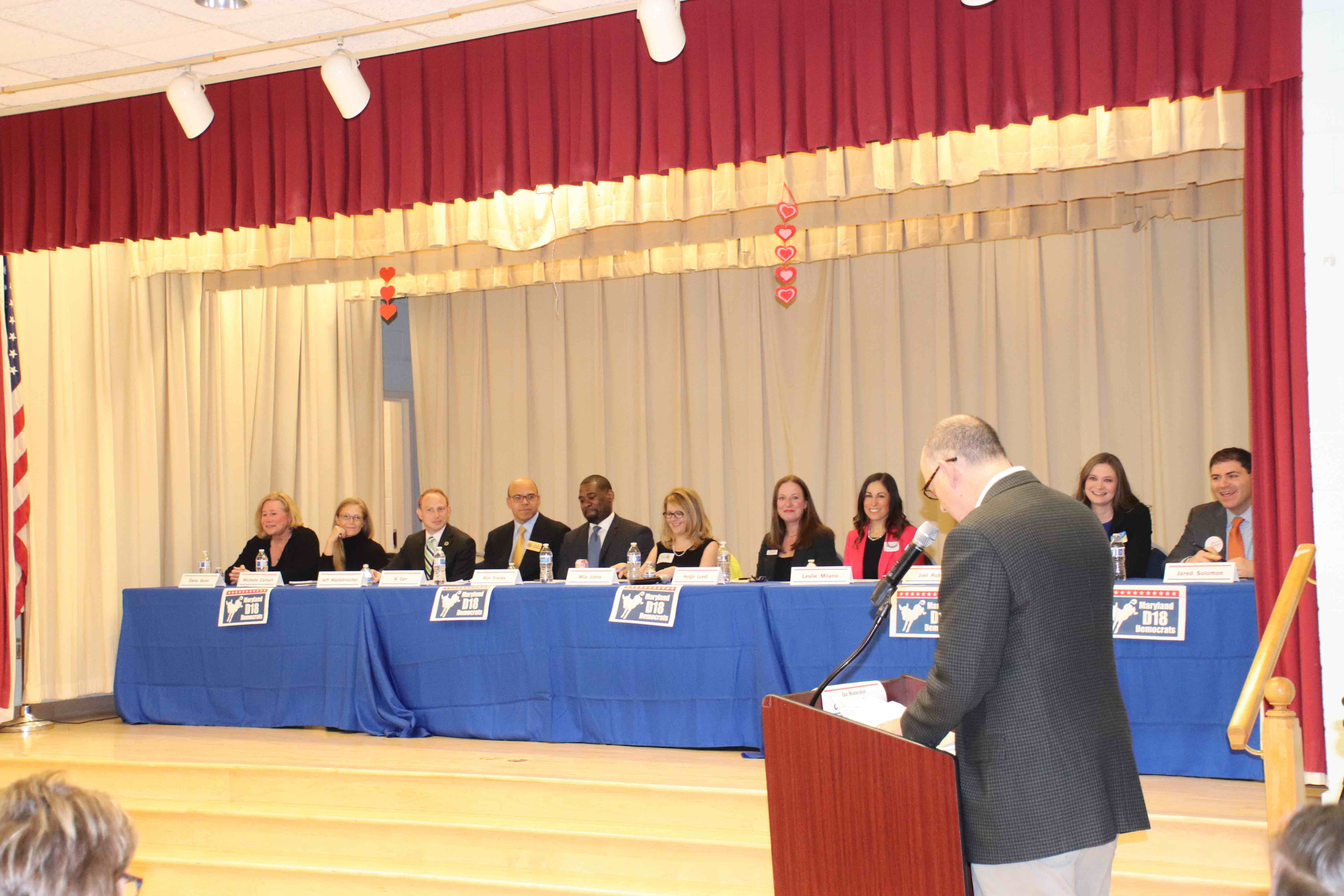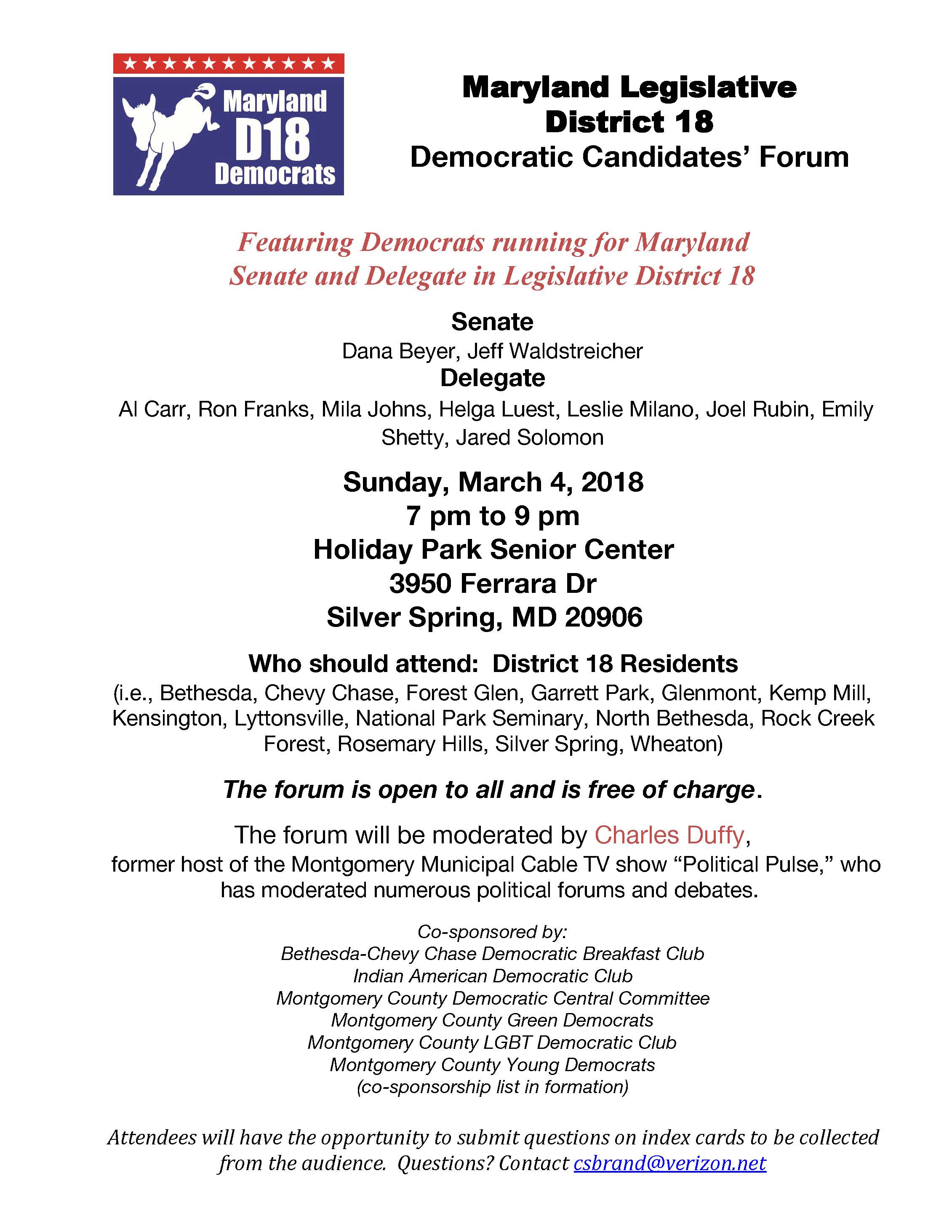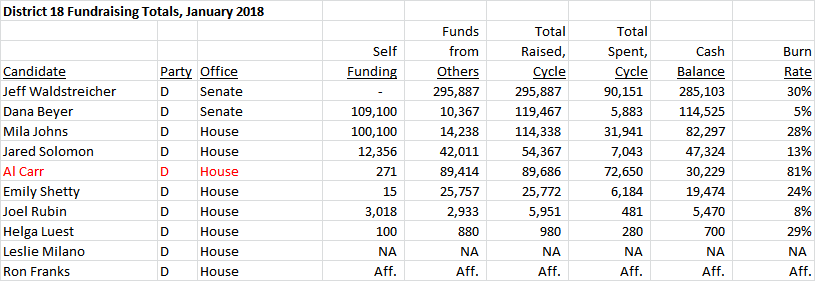Ten (!) candidates participated in the District 18 Democratic Caucus forum for the open delegate nomination that MCDCC will fill tomorrow night.
I was first struck by who wasn’t there: Ardy Kamali, Sen. Jeff Waldstreicher’s legislative aide who raced down to file for the office but now doesn’t seem interested. I reached out to Waldstreicher for Kamali’s contact information but he has not replied. I’m still wondering if Kamali lives in the district, how he heard about the vacancy, and why he raced down to Annapolis.
The forum started on a poor note with the first ten minutes given over to an “introduction” that was essentially advertising for the three incumbents state legislator running for reelection. A little ironic in a party that highlights leveling the playing field so strongly.
The ten candidates who participated were:
Cecily Baskir
Carlos Camacho
Marla Hollander
Aaron Kaufman
Mark Lande
Leslie Milano
Jose Ortiz
Joel Rubin
Ron Sachs
Michael Tardif
Each candidate got to give an opening statement and then up to one minute to answer three questions posed by the moderator. The first two questions essentially asked them to highlight a key issue with the focus in the second being on local questions. The third query was whether everyone in District 18 can live comfortably. (Is there any community where the answer would be “yes”?)
The candidate in a strong position who helped himself most is Central Committee Member Aaron Kaufman. Now 35, Aaron is no longer the teenager I first met years ago through our mutual involvement in local politics. A “lifelong District 18 resident,” he believes “fervently in serving my community,” “serving those with significant needs” and “would bring unique diversity because I have cerebral palsy.”
Kaufman combined a general passion on the issues with mention of specific proposals he supports to address them. He gave the best answer on the greatest local problem, highlighting food insecurity. “Our streets haven’t been paved with gold in a long time. We have more kids on free and reduced meals than the DC public school system.” Kaufman argued he was best positioned to address the issues, “You have to know what levers to push and have relationships with people. I do.”
Former Chevy Chase Councilmember Cecily Baskir outlined a wealth of experience on the PTA, a law practice representing indigent defendants, and teaching part-time at Catholic University Law School. She reminded us that she knows how to build effective coalitions, through her work building the Coalition of Bethesda Area Residents (CBAR) before she joined the TOCC Council.
Her primary issue was education; she wants to work to implement the Blueprint for Maryland’s future as well as combat COVID learning loss, school overcrowding, and the mental health crisis. Baskir did an excellent job connoting knowledge in experience in a tight time frame.
Michael Tardif’s brand of politics may not exactly be mine, but he made his case well and convincingly. Tardif has an interesting personal story, growing up speaking French as his first language in a small town in Maine and the son of a labor leader. He and his husband have been married and living in the area for 24 years. Tardif described how he was named the 2021 Democrat of the Year for working “tirelessly for the local party to improve communications, voter access, and scheduling over 150 town hall meetings with officials.”
Tardif gave perhaps the most skillful answer on what one issue he thought was most important by subverting the question, saying that “housing is a human right, health care is a human right, we have to move fast on climate change, protect LGBT students and adults. We can walk and chew gum at the same time, and advance all of these priorities as fast as we can.” It’s the sort of answer that highlights possibilities and Democrats like.
At 69, newcomer Ron Sachs may have been the oldest candidate in the race but his life experience was a needed reminder of its value in a culture that venerates the young. Sachs has lived in the district for four decades and advocated for the First Amendment as a photojournalist and member of the White House News Association. He’s not interested in using this as a steppingstone to higher office and wants to advocate for people like his daughter, Melissa, a child with special needs. He raised several issues, but this seemed to be his passion along with reducing prescription drug prices—a key problem for older voters.
Carlos Camacho is not someone who I had seen previously but got me interested. A former Peace Corps volunteer in Mozambique, he explained that he’s “running because top-down governance isn’t effective.” He worked for the county council until recently but left because it was “too hierarchical.” I’m not sure he’d find the House of Delegates any more congenial. Camacho now works for Baltimore City Parks & Rec as a community liaison. He emphasized the importance of education, including “high quality virtual education” and “pathways to higher education in high value fields.”
In addition to her fourth-place finish in 2018, Leslie Milano highlighted her experience in leadership positions at the Montgomery County Women’s Democratic Club, Committee for Montgomery, CCES PTA and the Montgomery County Human Rights Commission. Milano was most intriguing when arguing that “Maryland is a small state with opportunity to pass progressive legislation. We need to understand the real value we have in that role” and we must think about the “possibilities of what Maryland is.”
Joel Rubin tagged himself as a “real fighter for democracy,” explaining that he “tried to file on Friday after the first Seder so we can fight for our democracy” and that he is similarly ready to “sprint to Annapolis to work for you.” I had trouble following his answer to the first question. In contrast, his very cogent answer to the final question will no doubt divide people but should win points precisely for not staying on utterly safe ground. Rubin explained that “development has run amok.” We need to “right size development while we get the benefit of development, but so that people are lifted up, with enough green space, investment in schools and infrastructure.”
Jose Ortiz worked for Democrats for the last twenty years, living here for the past ten. Beyond serving as a precinct chair, he has been “active in this diverse community” and is a “small business owner.” Democrats could use more candidates and officials who have experience in business rather than government, so I’d like to know more. Ortiz heavily highlighted his work with former Del. Ana Sol Gutiérrez on many issues.
Marla Hollander has lived in Kensington for nine years. She says we “need leaders who can find pathways to a new normal where anyone can thrive.” A member of the 2022 Emerge class, she has worked with nonprofits to champion community-led solutions. I would have liked to hear more detail, but the forum wasn’t conducive to lengthy explanation. When speaking on health policy, her reference to “breaking down silos” brought back bad memories of these trendy academic buzzwords from a few years back, but that’s just my bedbug.
Mark Lande expressed a real passion for ending Putin’s aggression in Ukraine. Kudos for putting himself out there but it’s probably not a good focus for the state legislature.

